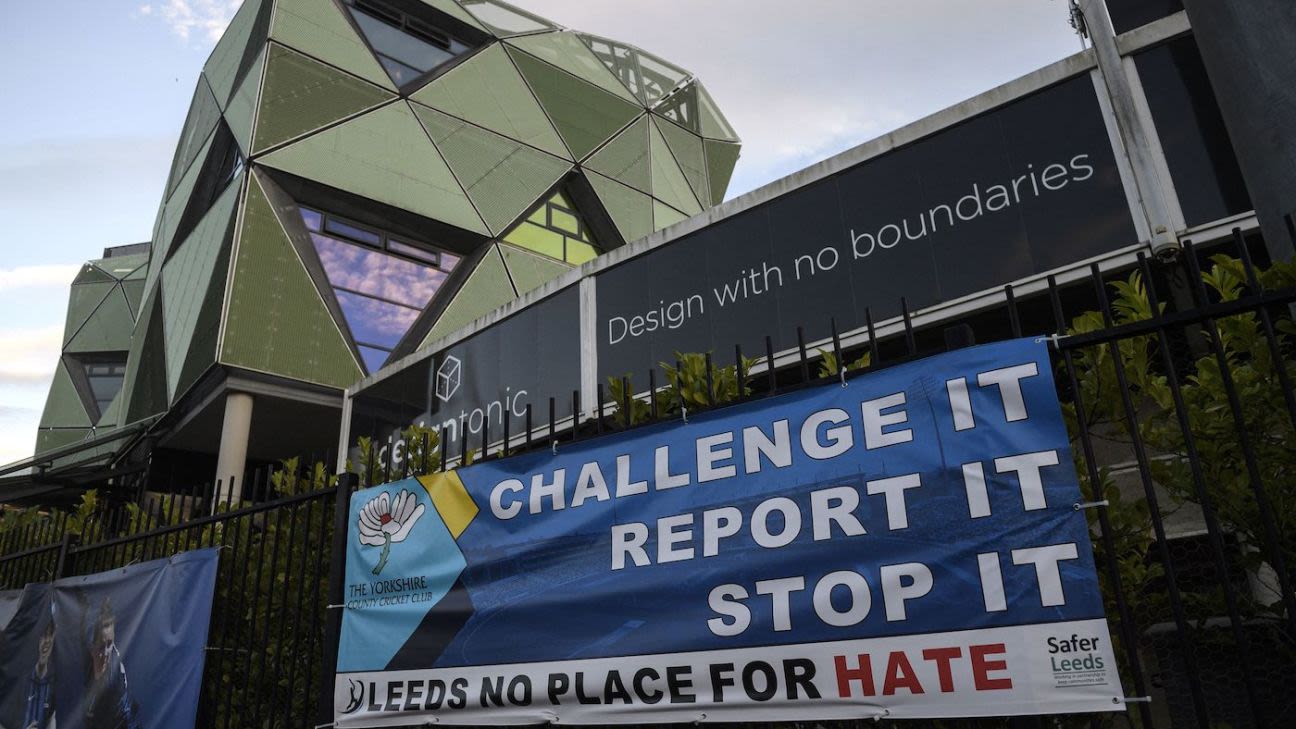The letter makes no concessions as to Yorkshire’s treatment of Rafiq, who told ESPNcricinfo last year that he had been driven “to the brink of suicide” during his time at the club; in fact, it doubles down on his reputation as a troublemaker (“problematic in the dressing room and a complete liability off the field”), and seeks to defend the name of Yorkshire cricket and the “White Rose” culture that Rafiq called into question during his emotional testimony to the Department of Digital, Culture, Media and Sport select committee last month.
For the likes of Lord Kamlesh Patel, the county’s new chairman, and the ECB – for whom the Yorkshire crisis is a direct threat to their attempts to promote diversity and to ensure that the game is universally recognised as offering fair opportunities for all – this private appeal to the board appears now to have regarded as evidence of an unwillingness to change. However, in the event of legal action, it may fall well short of constituting gross misconduct.
Rafiq’s claims of racial mistreatment have taken a wrecking ball to Yorkshire cricket, with sponsors abandoning the club in the wake of the allegations and the ECB suspending the county from hosting major matches. Many within the club suspect that the imposition of an ECB-approved emergency staff could be a means of ensuring an early return of international cricket to Headingley.
Either way, the dismissal of individuals with not far short of 300 years’ service to Yorkshire, and the county’s apparent scapegoating as English cricket’s bad apple, would appear to draw attention away from the sport’s long-term failures in the development of minority-ethnic cricketers, a widespread and complex issue. But in a febrile social media world, with a culture war at its height, general postures are adopted in an instant with little care for specific facts.
Yorkshire’s playing staff have held an emergency meeting with Lord Patel, but his conciliatory remarks upon taking up the role, including assurances that the club was seeking a quick return to stability and normality, now seem very much at odds with the mass dismissals. Players’ talk of finding new counties are often not followed up – and many counties’ budgets are already spent – but the mood is an unhappy one.
Lord Patel is not the only person in this drama to now be accused of duplicitous behaviour. The former chairman of Yorkshire and the ECB, Colin Graves, whose family trust is owed nearly £20 million by Yorkshire, has an investment to protect. And Roger Hutton, the outgoing chairman, and the one person who gave evidence on behalf of Yorkshire to the DCMS committee, is also facing renewed accusations that he mishandled an investigation that should have been settled in weeks, but has now stretched for well over a year. Hutton, for his part, told the DCMS hearing that he felt the club’s culture had been “stuck in the past”, and that his resignation back in August, in the wake of the club’s “profound apologies” to Rafiq, would not have helped to bring about change.
But many of those same people had signed up for a vision of a better way forward, of a vision of fairness for all, not a full-scale coup d’etat. To express deep misgivings is uncomfortable, and risks echoing the views of the far-right, who are now sniffing round this story with a growing realization that here is a chance to sow division and disunity. Rifts could now deepen. That, in itself, is a tragedy.
Lord Patel, whose family relocated to Bradford in the early 60s when he was an infant, has an impressive CV, but his approach, seemingly endorsed by the ECB, is now giving grave cause for concern. Uncompromising, implacable, adamant that only his way is the right one, and supremely confident in his own moral compass, he has revealed many of the Yorkshire attributes that over generations have caused the county so much pain.
David Hopps writes on county cricket for ESPNcricinfo @davidkhopps
